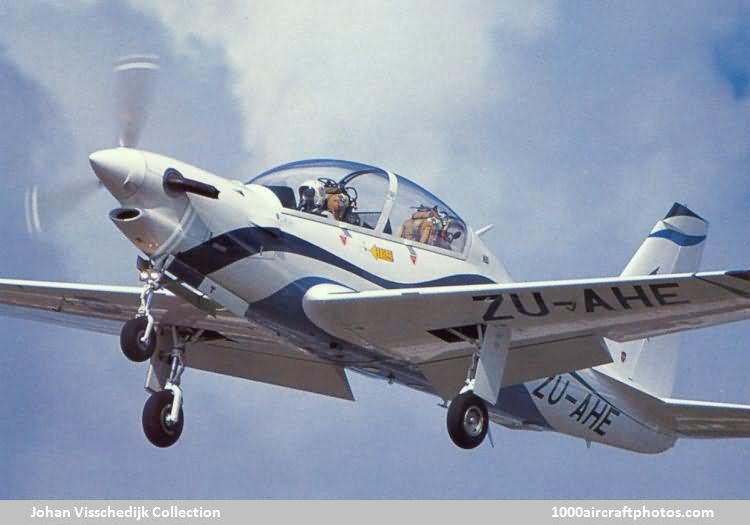02/28/2014. Remarks by Johan Visschedijk: "Under the name Project Ovid, the South African research agency Aerotek (Aeronautical Systems Technology), a division of the government-owned CSIR (Council for Scientific and Industrial Research) started advanced composites manufacturing technology research in 1983, this to achieve independence in South Africa's defense requirements, as foreign acquisition was severe restricted by the Apartheid embargos, voluntary since 1963, mandatory since 1977.
Eventually construction of a all-composite (Kevlar and glass fiber) construction technology demonstrator was started by Aerotek personnel in 1989, Atlas Aviation (an aircraft manufacturing division of the government-owned Armscor) provided assistance. The demonstrator, which was allotted the military serial 8000, was fitted with a 750 hp Pratt & Whitney PT6A-25C turbine engine, and featured ejection seats. The unnamed Aerotek Project Ovid aircraft was first flown by South African AF pilots on April 29, 1991. (Note the tufted canopy, rear fuselage and tail.)
Later in 1991, and simply designated as NGT (New Generation Trainer), the aircraft was entered by Atlas in the South African AF contest for a North American AT-6G replacement. However, the South African AF selected the custom-modified Pilatus PC-7 Mk.II in June 1993. Subsequently the aircraft was then used for test and development work and Atlas Aircraft carried out several modifications and improvements and efforts were made to market the aircraft abroad.
For that purpose it had been renamed as ACE (All Composite Evaluator) and was equipped with a glass cockpit, modified tail plane and a dive brake. Designated Atlas Ace it came on the civil registry as ZU-AHE, registered to Denel (since 1992 the new parent company of Atlas). The aircraft was damaged beyond repair in a wheels-up landing, after losing pitch control on February 14, 1995.
A planned ACE 2 version would have a longer forward fuselage, updated avionics and a more powerful 1,200 hp PT6A-68C engine. In late 1995, construction of a prototype was started, but was halted on budget grounds in early 1996, about the same time (April 1996) when Atlas was renamed Denel."
